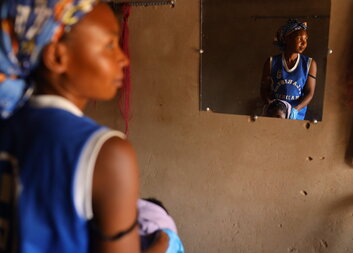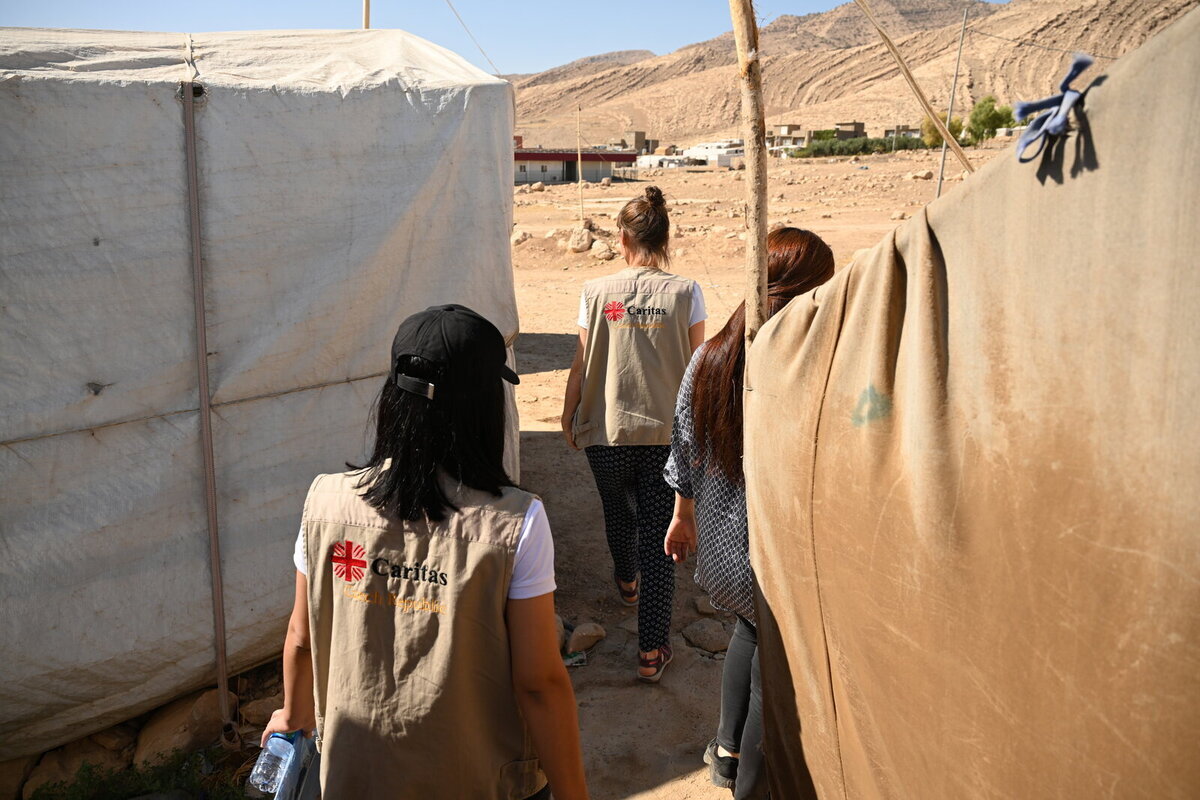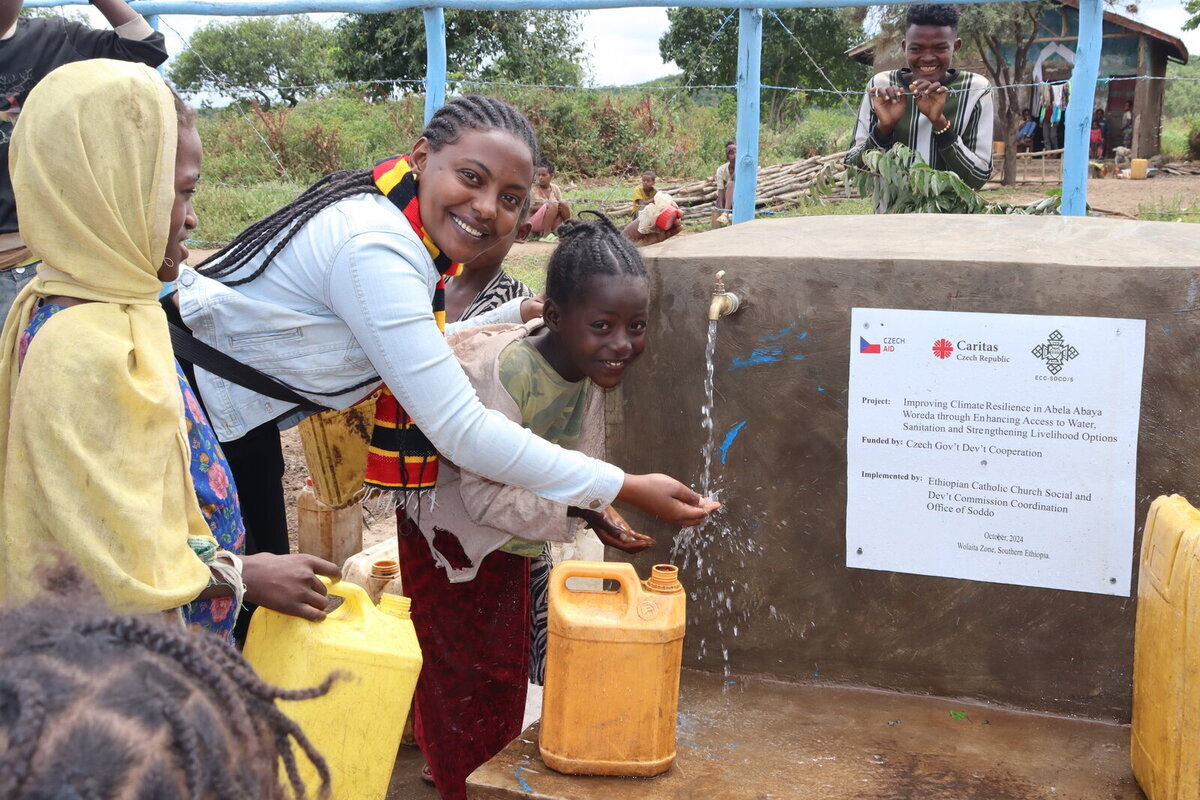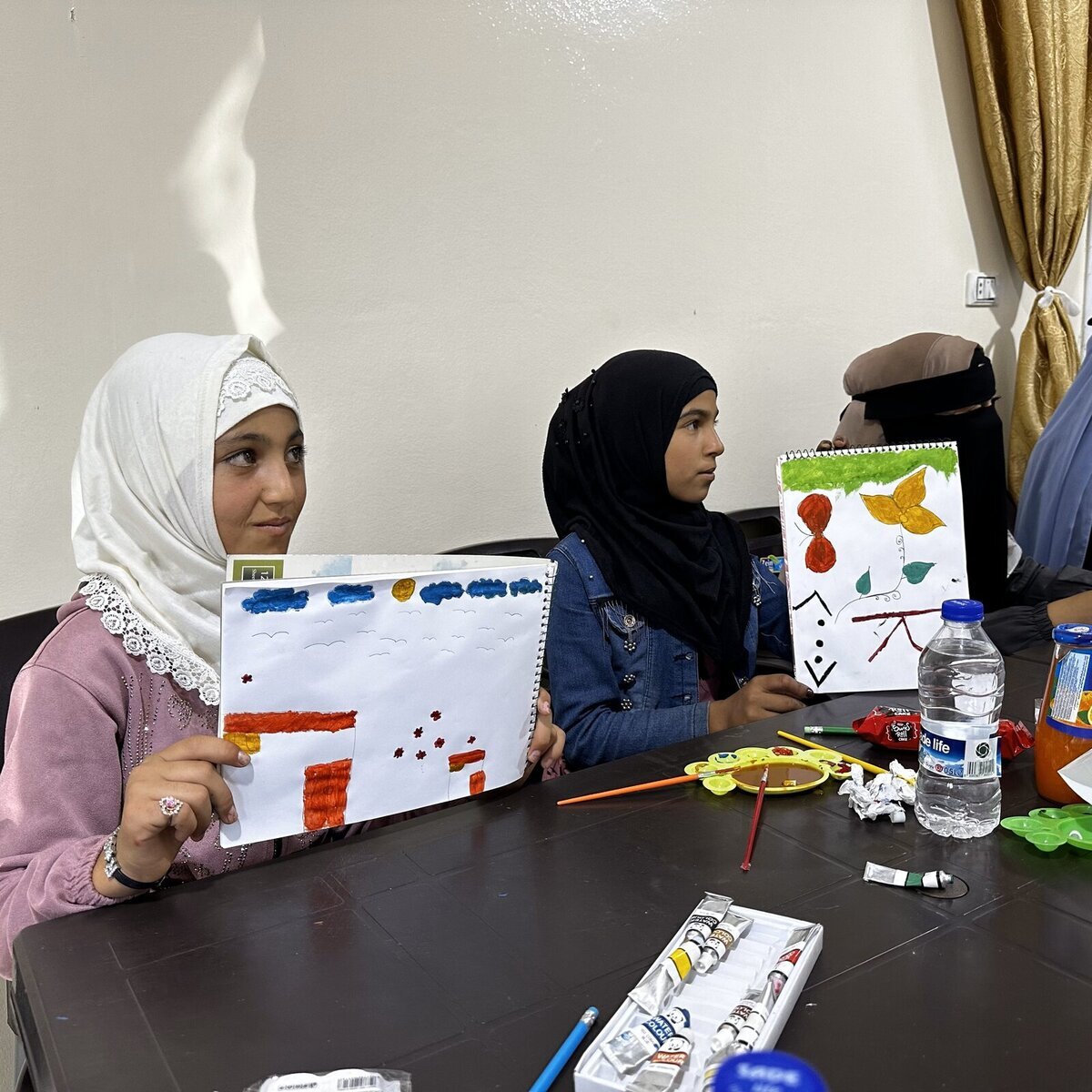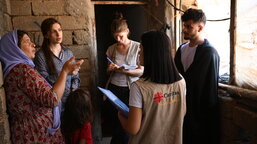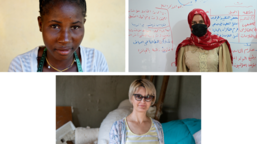International Women's Day is not only a celebration of women's achievements but also a reminder of the challenges they face. In humanitarian crises, conflicts, and the aftermath of climate change, women and girls are particularly vulnerable. Here’s a look at some key areas where they bear the brunt of these crises.
1. Violence against women increases during crises
It is a sad reality that all forms of violence against women, including sexual harassment, rape, and human trafficking, dramatically increase during disasters and crises. Up to 70% of women in humanitarian crises experience gender-based violence, compared to the global average of 35%.
Fear of retaliation and social stigma often prevent victims from seeking help. In situations where basic protection systems fail, women are left without the support they need to escape violence and rebuild their lives.
Women also often hesitate to address health issues or sensitive matters with male humanitarian workers, leading to inadequate access to essential hygiene products like pads and tampons, as well as insufficient healthcare.
2. Climate change and its impact on women
Extreme weather events such as droughts, heatwaves, and floods are making many areas partially or entirely uninhabitable. These conditions force millions of people to leave their homes, resulting in internal displacement or migration. Women in these situations face heightened risks.
The impacts of climate change are not evenly distributed—women and girls make up as much as 70% of those displaced by climate change. When drought reduces access to drinking water, it is again mostly women who must travel longer distances to fetch it. This not only increases their physical burden but also exposes them to a higher risk of assault.
For example, Caritas Czech Republic helps ensure access to clean drinking water in Ethiopia. Thanks to our support, Ethiopian woman Almaz no longer has to walk three hours for water, as she now has it much closer to home.
Women are also more likely to lose their jobs, suffer from food shortages, and face higher health risks due to climate change. These factors further deepen poverty and limit their opportunities for education and economic security.
3. Displacement and loss of home
Conflicts and natural disasters force millions of people from their homes. In such situations, women not only face physical dangers but also economic hardships and limited access to basic services such as healthcare, safe shelter, and food.
In Gaza alone, women and girls accounted for up to one million of the 1.9 million displaced people before the ceasefire. In many regions, women have a lower chance of survival during natural disasters. This is not only due to physical factors but also lower levels of education, which limit their access to life-saving information and essential skills, such as swimming.
4. Limited access to education
Conflicts and crises often disrupt girls' education. Schools are closed, routes to school become dangerous, and families facing economic hardship prioritise boys' education. Incomplete education leads to fewer job opportunities and an increased risk of poverty.
Without access to quality education, girls find themselves trapped in a cycle of inequality. Yet education is key to economic independence, better health, and the ability to make decisions about their own lives. When girls cannot complete school, they are more likely to be forced into marriage or become victims of violence.
Thanks to Caritas Czech Republic's support, twelve-year-old Maryam from Syria can continue her studies and pursue her dream of becoming a teacher.
5. Economic insecurity
Economic insecurity forces many women and girls in crisis-affected areas into informal or risky work, exposing them to exploitation and poor working conditions. The lack of financial resources is also a major reason why women cannot afford healthcare or safe housing.
Single mothers are particularly vulnerable, often balancing family care with the struggle to meet basic needs. Without financial stability, they become more susceptible to exploitation, both at work and in their personal lives. Supporting women’s entrepreneurship and access to micro-financing can be key to overcoming these challenges.
Caritas Czech Republic has long supported women striving to start their own businesses and achieve independence. Thanks to our assistance, Rana from Iraq opened her own restaurant, Iqbal began earning as a seamstress, and Caroline from Zambia established a poultry farm.
Join us in helping women in crises
Supporting women in crisis situations, ensuring their safety, access to education, and healthcare is crucial for them to not only survive but also reach their full potential.
Caritas Czech Republic helps women facing difficult life circumstances caused by conflict, natural disasters, or poverty. We provide essential humanitarian aid, healthcare, and social support, empowering women to become self-sufficient despite challenging conditions.
We can only continue this work thanks to the generosity of our donors. Thank you to everyone who chooses to help.
DONATE FOR WOMEN'S EMPOWERMENT

